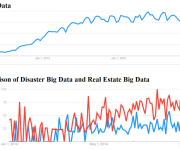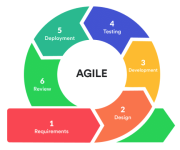The Vital Role of Medical Computers in Modern Healthcare
In the world of healthcare, where the difference between life and death can rest on the accuracy of a single data point, the unsung heroes often come in the form of bits and bytes.
Yes, I’m talking about medical computers – those sleek, often silent guardians that hum in the background of bustling hospitals, clinics, and medical facilities worldwide.
Before you yawn and click away, hear me out. These aren’t your run-of-the-mill, office-bound PCs. Oh, no.
Medical computers are the tailored suits in a world of off-the-rack technology, designed specifically for the high-stakes, fast-paced environment of modern healthcare.
A Brief History of a Game-Changer
Picture the healthcare scene a few decades ago – mountains of paper files, slow communication, and the harrowing possibility that the critical piece of information you needed was sitting in a folder in another building.
Fast forward to today, and the landscape looks remarkably different, thanks in no small part to the advent of specialized medical computers for healthcare.
These aren’t your grandmother’s computing devices; they’re high-speed, durable, and equipped with features that make the lives of healthcare professionals significantly easier.
And, thankfully, they’re much less likely to be infected with a computer virus than the patients are with the real deal!
Why Medical Computers Deserve a Standing Ovation
- Accuracy and Efficiency: With features tailored for healthcare settings, such as touchscreen interfaces that work even when donned in gloves, medical computers help reduce human error. Precision in treatment plans, medication orders, and patient monitoring data? Check, check, and check.
- Speedy Information Access: Imagine having to sift through rows of file cabinets to find a patient’s history. Now, stop imagining, because medical computers make this nightmarish scenario obsolete. Electronic Health Records (EHRs) can be accessed in a flash, making patient care faster and more effective.
- Hygiene and Health: In an environment where cleanliness is next to godliness (or, frankly, where it is godliness), medical computers come equipped with antimicrobial coatings and can withstand regular cleaning. Thank goodness for that, because who knows what type of new life forms could evolve from a standard keyboard in a hospital setting!
- Telehealth and Remote Monitoring: The ability to provide care and monitor patients remotely became not just a convenience but a necessity during the COVID-19 pandemic. This trend is here to stay, with medical computers serving as the pivotal link between care providers and patients, no matter the physical distance.
- Integration and Customization: In the modern healthcare ecosystem, the ability to play well with others is crucial. Medical computers can seamlessly integrate with various medical devices and software, ensuring a cohesive workflow that supports rather than hinders care provision.
The Heartbeat of Healthcare Technology
To truly appreciate the role of medical computers in healthcare, it’s important to recognize that they are more than just gadgets.
They embody the marriage of technology and compassionate care, enabling healthcare providers to offer their patients the best possible outcomes.
It’s a bit like having a superhero sidekick, except instead of fighting crime, they’re fighting inefficiencies, inaccuracies, and infections.
Looking to the Future
The road ahead for medical computers is as exciting as the latest season of your favorite medical drama (with hopefully less dramatic romantic entanglements).
Advances in AI, machine learning, and predictive analytics are set to make these devices even smarter and more indispensable in the quest to save lives and maintain health.
While we may not hold parades in honor of medical computers or write ballads about their exploits, the truth is that they are pivotal in the operation of a 21st-century healthcare system.
They’re the unsung heroes, steadfastly providing the pulse for medical innovation, patient care, and ultimately, saving lives. If that’s not worth a standing ovation, I don’t know what is.


























